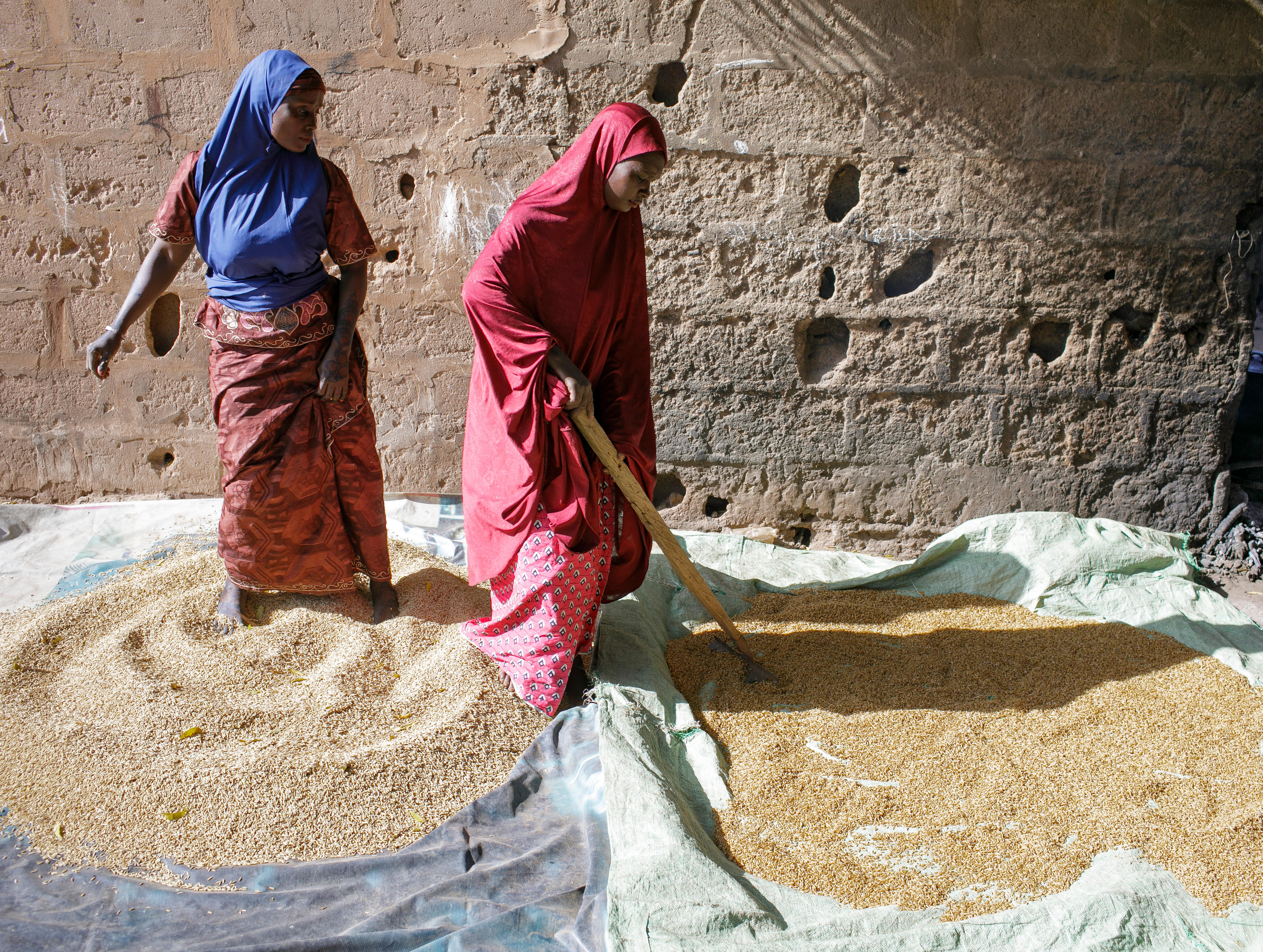IFAD Food security during the pandemic: Germany strengthens International Fund for Agricultural Development
Women at the processing of parboiled rice in Nigeria
On the occasion of the 44th IFAD Governing Council meeting, which is being held online on 17 and 18 February, Maria Flachsbarth, Parliamentary State Secretary at the German Development Ministry (BMZ), made the following statement: “The COVID-19 pandemic has long since become a global 'polypandemic'. The virus brings poverty and hunger for millions of people in developing countries and poses a threat to development gains that have been achieved over decades. In 2020, more than 100 million additional people went hungry due to COVID-19. The situation is exacerbated by further challenges such as climate change, posing major problems for the agricultural sector in our partner countries. So it is all the more important that we invest in rural development now and strengthen smallholders and their families. By significantly increasing our contribution, we are highlighting our confidence in IFAD's ability to make lasting improvements to the food situation in rural areas and to provide a better future for the poor in rural regions that are particularly hard hit by climate change.”
The decision to set up the International Fund for Agricultural Development (IFAD) was taken at the World Food Conference in 1974. IFAD is a specialised agency of the United Nations and focuses on fighting poverty in rural areas. To that end, it provides reduced-interest loans to developing countries. The Fund currently has 172 members. Germany is one of the founding members. During the 2019–2021 replenishment period, the Fund's lending volume was about 3.5 billion US dollars.
Through its specialisation in rural development and its focus on the poorest people in remote regions and fragile contexts, IFAD is making a significant contribution towards implementing the Sustainable Development Goals.
During the new replenishment period, 40 per cent of all programmes will have to be climate related.
